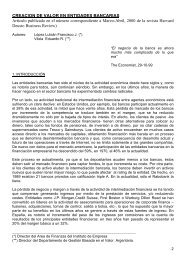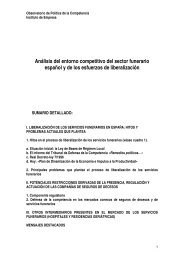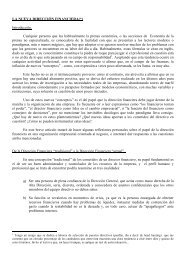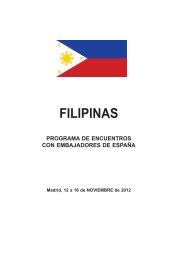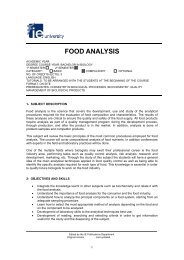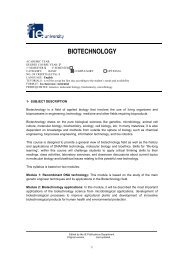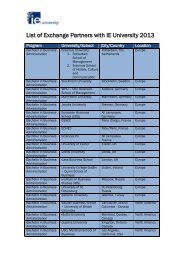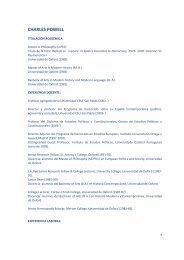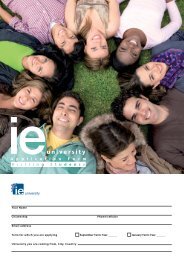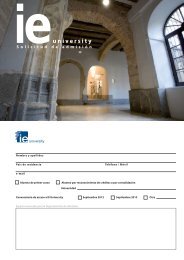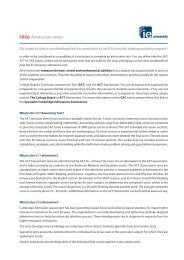SPECIALIZED WRITING - IE
SPECIALIZED WRITING - IE
SPECIALIZED WRITING - IE
You also want an ePaper? Increase the reach of your titles
YUMPU automatically turns print PDFs into web optimized ePapers that Google loves.
genres survive and which are borderline between fiction and reality, between literature and<br />
journalism. What changes have been introduced in impartial and objective writing such<br />
phenomena as political correctness, the polarization of society and the 140 characters.<br />
2. OBJECTIVES AND SKILLS<br />
Students will be able to identify the different types of journalistic genres and the purposes they<br />
serve. By the end of the class, students will have a solid understanding of what distinguishes<br />
journalistic writing from other information and be able to create original journalistic articles.<br />
2.1. Conceptual objectives<br />
– Share with students the historical references, from the beginning of the 20th Century, so<br />
that they can understand the current media context.<br />
– Cover the different journalistic genres and formats<br />
– Specific characteristics of the written message for radio and television<br />
– The new media: write for the reader of for Google?: the journalistic language in texts<br />
and titles of digital media<br />
– The new markets: corporate communication and public relations, advertising, training<br />
and user manuals, human resources…<br />
– The new values: ethics and service information. NGO’s.<br />
If an image is worth more than one thousand words, what kind of message should accompany a<br />
strong image?<br />
2.2. Professional skills. Develop competencies and skills<br />
2.2.1 SPECIFIC for:<br />
– Not only correct use but adequate use of written language in the different media and<br />
channels.<br />
– News writing, chronicles, reports and other examples of journalitic genres.<br />
– Management of information for each section of different media, in line with their different<br />
styles.<br />
– Interviewing: the power of questions. Coaching and Journalism.<br />
– Preparing press releases, CVs and brochures.<br />
2.2.2. TRANSVERSALLY for:<br />
Improving synthesis, argumentation and critical logic skills<br />
Promoting and encourage free discussion and interchange of ideas and opinions<br />
Developing teamwork, problem resolution and conflict management<br />
Stimulate creativity when choosing topics, approach and presentation<br />
2.3. Learning outcomes<br />
After completion of the classes the student will be able to:<br />
– Establish and evaluate the key elements for an effective communication.<br />
– Define the creation, editing and information spreading processes.<br />
2⏐



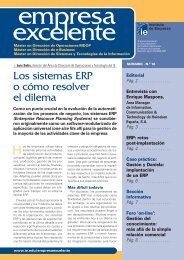
![Change Management Workshop Program Brochure[pdf] - IE](https://img.yumpu.com/22502183/1/184x260/change-management-workshop-program-brochurepdf-ie.jpg?quality=85)
